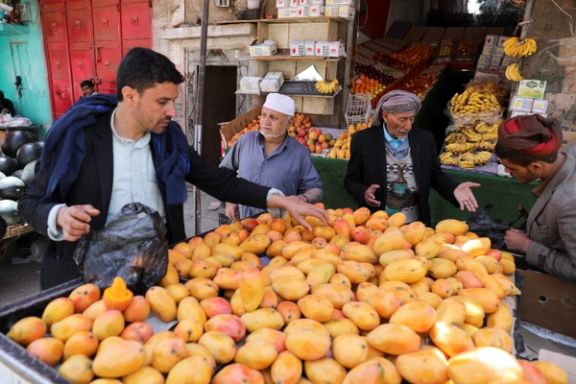Iran Welcomes UN-Brokered Ceasefire In Yemen

Iran has welcomed a two-month truce between Iran-backed Houthis of Yemen and a Saudi-led coalition fighting the rebel force for seven years.

Iran has welcomed a two-month truce between Iran-backed Houthis of Yemen and a Saudi-led coalition fighting the rebel force for seven years.
Iran’s Foreign Ministry Spokesman Saeed Khatibzadeh in a statement Saturday expressed hope that the ceasefire could be "a prelude to the complete lifting of the siege on Yemen" and the "establishment of a permanent truce" which could help find a "political solution to the crisis", and lead to "complete exchange of prisoners" between the warring sides.
This is a major breakthrough as the warring sides in Yemen's conflict have agreed to a two-month nationwide truce. The Yemeni conflict is widely seen in the region as a proxy war between Saudi Arabia and Iran.
The United States and others have criticized Iran for supplying missiles, drones and other weapons to the Houthis as part of its drive for regional influence and attempts to weaken Saudi Arabia. At the same time Tehran is asking Washington to lift sanctions imposed on its Revolutionary Guard that is managing proxy forces in the Middle East.
It is reasonable to assume that without Tehran’s agreement the Houthis would not have accepted a ceasefire with Riyadh.
The truce will allow fuel ships to enter Hodeidah port controlled by Houthis and for scheduled commercial flights to operate from the airport in the capital Sana’a to other countries in the region. The parties have also agreed to discuss opening roads in Ta’izz and other Yemeni provinces.
UN special envoy Hans Grundberg said Friday that ceasefire would come into effectahead of the holy month of Ramadhan at 7:00 PM local time (1600 GMT) and could be renewed if the involved parties agreed.
"The aim of this Truce is to give Yemenis a necessary break from violence, relief from the humanitarian suffering and most importantly hope that an end to this conflict is possible," Grundberg said in a statement Friday, adding he would press for a permanent ceasefire.
UN Secretary-General Antonio Guterres has also expressed hope that the truce could be "a first step to ending Yemen's devastating war" and urged the Houthis, also known as Ansarullah, and the Saudi-led coalition to resume an "inclusive and comprehensive Yemeni political process."
Houthis said Wednesday halting military operations for the month of Ramadan, announced by the coalition, was “meaningless” if the siege against the rebels continued to be in full effect.
The coalition's ceasefire came only days after Houthis launched multiple drone and missile attack on Saudi oil giant Aramco's petroleum products distribution station in Jeddah on March 25, presumably as behind the scenes talks were taking place.
The United States, its Western allies, and others blame Iran-supllied drones and missiles for attacks by Houthis on Saudi and Emirati energy facilities.
In mid-March in response to possible Saudi-based Gulf Cooperation Council (GCC) plans to invite Yemeni parties including the Houthis for consultations in Riyadh, the Iran-backed Ansarullah said they welcomed talks only if the venue was a neutral country.
The coalition that includes Saudi Arabia's regional allies including the United Arab Emirates (UAE) has been at war against the Houthis since 2015 in support of the internationally recognized President Abdrabbuh Mansur Hadi. The Houthis ousted Hadi in late 2014 for what they said was corruption.